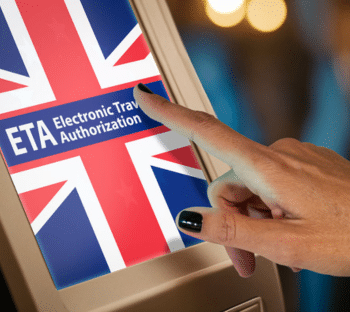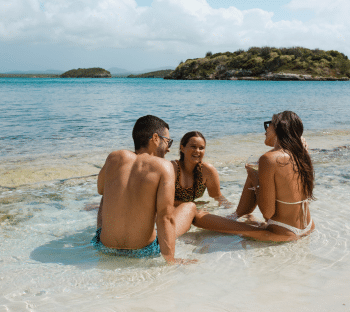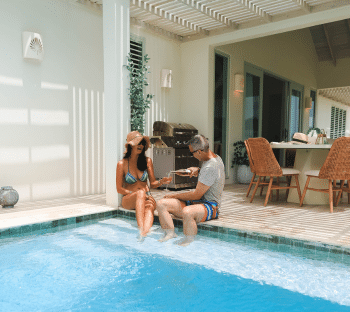Thinking about making a move abroad? You’re not alone. According to a U.S. State Department report from 2020, an estimated 9 million U.S. citizens live overseas—a number that reflects a long-standing trend and growing interest in international relocation. More recently, a 2025 survey found that 17% of Americans are considering moving abroad in the next five years, with countries like Canada, Italy, and England topping the list.
Whether you’re seeking lifestyle change, new business opportunities, or a strategic second residence, many countries offer accessible pathways for Americans—particularly through residency and citizenship by investment programs. These programs often include options like government contributions, real estate investment, or business development, and can provide a smoother transition for those ready to make the leap.
This blog will guide you through the selection process and list the top picks for second citizenship.
What to Consider When Choosing a Second Country
While your US passport may be accepted in many nations, moving to a new territory will still require time, money, and effort. The ease of applying for second citizenship differs from country to country, but since you need to exert effort for your planned relocation, you must ensure that it’s worth it.
To make sure you’re leaving the US for a better quality of life elsewhere, consider the following factors when choosing a second passport country:
Cost of Living
Before deciding to move, you need to know how affordable your life will be in your new home. The cost of living index (CLI) is a snapshot of the overall average cost of living in a city based on the following basic expenses:
- Food
- Shelter
- Transportation
- Energy
- Clothing
- Education
- Healthcare
- Childcare
- Entertainment
The cost of living reflects the need-based expenses and may be affected by the cost of goods in different geographic locations.
Safety and Security
When choosing a second home, you also need to factor in the overall safety and security of a country. You can read up on this online, but make sure you rely only on reliable sources with data-supported claims.
A good example is the Global Peace Index (GPI). It analyzes the overall level of peacefulness of 163 independent states and territories based on qualitative and quantitative analysis. The GBI shows a country’s societal safety and security, absence of conflict, and degree of militarization.
Healthcare System
The quality of a country’s healthcare system determines how easily you and your family can seek medical assistance. It covers the availability of hospitals, clinics, and medical professionals and the affordability and accessibility of healthcare services.
Language and Culture
Adjusting to a new country can be daunting, especially if there are language and cultural barriers. To ensure a smooth transition, choose a nation where people can speak or understand English. You can also research the country’s culture, particularly the customs, traditions, and cuisine.
Second Citizenship Opportunities
Look for a place that not only welcomes expats but also encourages them to relocate through hassle-free citizenship programs. Aside from birthright citizenship, you can become a legal resident of another country through citizenship by investment in the nation’s government fund, sanctioned real estate, or an approved business venture.
Best Countries for Americans to Move to in 2025
Not sure where to begin? Below are some of the best countries where you can become a citizen and hold dual citizenship with the US:
Dominica
The Caribbean houses some of the easiest countries to immigrate to from the US, including Dominica. Here are a few facts to help you get to know the country better:
- Cost of Living: 23.5 percent (without rent) or 40.6 percent (with rent) lower than the US.
- Safety and Security: Ranked 38th globally in the 2023 World Citizenship Index (WCI) for the Safety and Security pillar.
- Healthcare: Somewhat restricted in terms of medical facilities, but the government provides free healthcare for pregnant women and patients suffering from infectious diseases.
- Language and Culture: English is widely spoken, but the locals also speak French patois.
- Citizenship: Dominica citizenship can be acquired through real estate investment and government donation, with a minimum investment of $200,000.
The country is known as the Nature Island of the Caribbean, offering lush tropical rainforests, waterfalls, and mud ponds. It is also the only place where sperm whales can be found all year round, making it a relatively popular destination for tourists.
Antigua and Barbuda
Antigua and Barbuda is another good choice for Americans seeking a second home in the Caribbean. Located in the Lesser Antilles, this twin-island nation used to rely mostly on agriculture but now has expanded its economy into tourism.
Here are a few facts about Antigua and Barbuda that can help you make an informed decision:
- Cost of Living: 56 percent less expensive than in the US.
- Safety and Security: Ranks 40 in the Rule of Law Index globally and 6th regionally in 2023.
- Healthcare: The Medical Benefits Scheme makes most healthcare free for legal residents in the country.
- Language and Culture: English is the official language, but many locals speak Creole. Festivities are colorful and filled with music and dancing, featuring musical genres such as calypso, reggae, and soca.
- Citizenship: The Antigua and Barbuda citizenship by investment program has one of the shortest processing times in the Caribbean. Investment routes include government contribution (from $230,000), real estate investment ($300,000 or higher), university donation (starts at $300,000) and business investment (at least $400,000).
Once you become a citizen, you’ll also enjoy visa-free travel to over 150 countries, lifetime dual citizenship, zero capital gain or estate taxes, and a laid-back Caribbean lifestyle.
Grenada
Known as the Isle of Spice, Grenada is a commonwealth country in the West Indies that offers straightforward citizenship options, making it one of the best countries for American expats.
Below are some facts about the country:
- Cost of Living: 9.4 percent less expensive than the US (with rent). Rent prices are 65 percent more affordable than American homes and apartments.
- Safety and Security: Ranks 49th in the 2023 Rule of Law Index.
- Healthcare: Has one of the best healthcare systems in the Caribbean, with over 30 medical facilities and free primary care services.
- Language and Culture: English is the official language, but locals also speak Grenadian Creole and French patois.
- Citizenship: Grenada citizenship by investment has three routes: government donation of $230,000 and above, real estate share worth at least $270,000, and real estate property investment of $350,000 or higher.
You can also acquire Grenada citizenship through naturalization. To become eligible, you must have lived as a legal resident in the country for 12 months straight (plus seven years prior to that).
Costa Rica
Many Americans head to Costa Rica not only for its vacation-perfect atmosphere but also for the country’s favorable tax policies (foreign-earned income is tax-free). The affordable healthcare system in the country is also well-regarded, not to mention the nation has been dubbed the top retirement destination for 2024.
Here are some crucial details you need to check before deciding to move to Costa Rica:
- Cost of Living: 34 percent less expensive than the United States, including rent.
- Safety and Security: Ranks 58th in the 2024 Global Peace Index.
- Healthcare: Cited by the World Health Organization as one of the best in the world due to its universal healthcare system, surpassing even that of the United States, where healthcare is mostly privatized.
- Language and Culture: Spanish is the official language, and 90 percent of the population is fluent in it.
- Citizenship: Straightforward relocation process for US citizens with a residency permit or valid visa for work, retirement, or education. Costa Rica also has a visa for digital nomads with health insurance and a proven monthly net income of $3,000.
Mexico
Millions of Americans looking for a second home have relocated to Mexico through the years. Due to its proximity to the United States, it has become the primary choice for those who want to move permanently but still want easy access to the US.
Below is an overview of the living conditions in the country:
- Cost of Living: 45.7 less expensive than in the US, with rent being the biggest monthly expense.
- Safety and Security: Ranks 138th (out of 163 countries) in the 2023 Global Peace Index. However, expats are opting for safer communities like Sayulita and Querétaro.
- Healthcare: Health insurance is required when moving to Mexico, though diagnostic services are much more affordable there. Many American expats also consider Mexican healthcare to be better than in the US.
- Language and Culture: Spanish is the primary language of the country. Mexican locals are friendly and welcoming, and about 10 percent of the population can speak English at varying proficiency levels.
- Citizenship: Americans can get one of three types of visas to stay in Mexico: a six-month holiday permit, a temporary working permit, and a permanent visa.
Expats recommend trying out different locations and staying in one place at a time on a six-month visa first before committing to any specific place. You can keep renewing your temporary visa until you accumulate four consecutive years of residency to acquire a permanent resident visa.
Explore Your Options
As more Americans look to broaden their horizons and create options for their future, countries around the world are welcoming them with open arms—and straightforward pathways to residency or citizenship. Whether you’re looking for a fresh start, a better work-life balance, or a strategic second passport, the opportunities are out there.
Connect with our team at Citizens International for expert help navigating your journey abroad.


